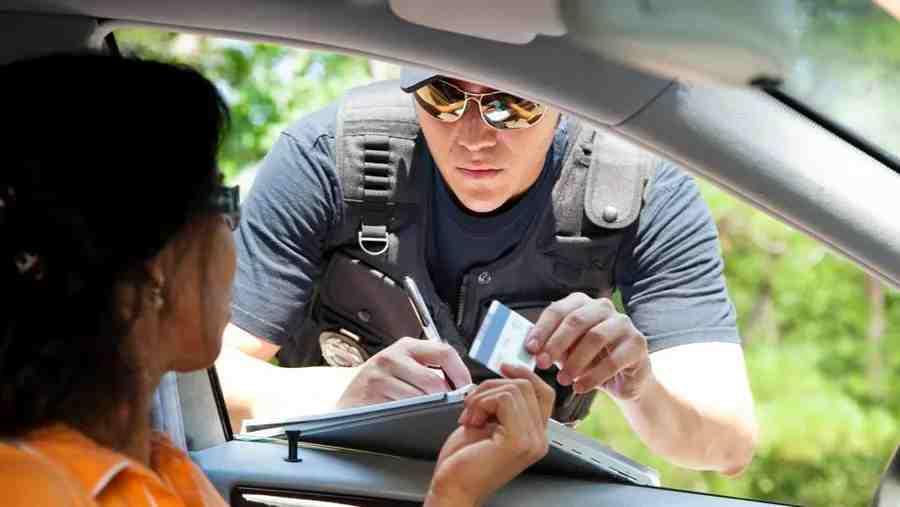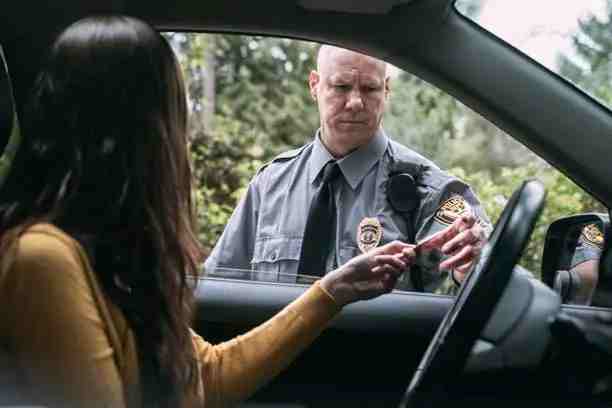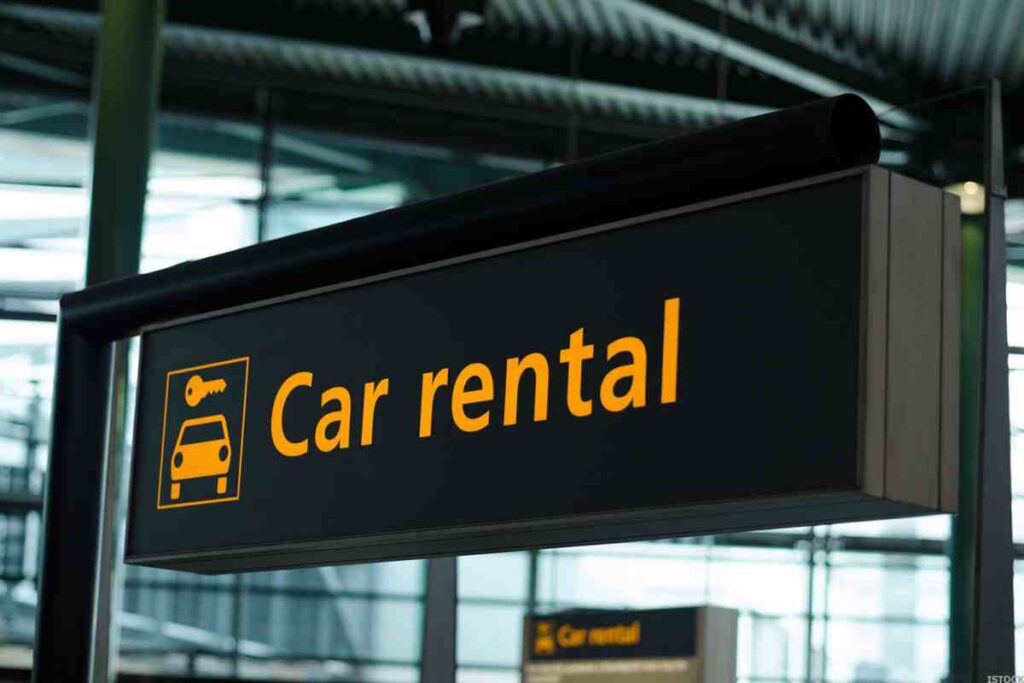Speeding tickets are more than just a momentary inconvenience. They can have long-lasting effects, particularly when it comes to your car insurance. But how does a simple speeding ticket translate into higher insurance premiums? And more importantly, when does this happen? In this article, we will delve into the intricate relationship between speeding tickets and insurance rates. We’ll explore how different types of speeding violations can impact your premiums, the duration of this impact, and how this varies based on your location. Additionally, we’ll provide tips on how to mitigate the effects of a speeding ticket and guide you through the process of shopping for new insurance after receiving a ticket.
Understanding Speeding Tickets

A speeding ticket is a citation issued by law enforcement to a driver who exceeds the lawful driving speed of a particular area. It’s a piece of paper that indicates a fine that the driver will have to pay. The laws around speeding tickets vary from state to state and country to country, but they generally fall into three categories: basic, maximum, and per se speed limits.
- Absolute Speed Limits: This is the most straightforward type of speed law. If you drive over the speed limit, even by 1 mph, you’ve violated the law. For example, if the sign says 40 mph and you’re driving at 41 mph or more, you’re legally accountable.
- Presumed (Per Se) Speed Limits: These are more complex and offer some flexibility in defense. In this system, it’s legal to drive over the posted limit as long as you’re driving safely given the current conditions. If you can prove that your speed was safe despite being over the limit, you may be acquitted.
- Basic Speed Limits: These require you to always drive at a safe speed, considering the conditions. You could be ticketed for driving too fast for conditions, even if you’re below the posted speed limit. This type often comes into play after accidents or during hazardous weather conditions.
The severity of a speeding ticket can range from a minor infraction to a serious felony, depending on the jurisdiction and the circumstances of the violation. Generally, a speeding violation is an infraction and carries fines that might range from about $25 to $400. In many states, a speeding ticket will also result in the Department of Motor Vehicles (DMV) assessing points to the driver’s record. The specific amount of the fine and the points assessed depend on the driver’s speed in relation to the speed limit.
It’s important to note that the consequences of a speeding ticket can extend beyond the immediate fine. For example, receiving a speeding ticket can lead to increased car insurance rates.
Insurance Premiums and Speeding Tickets
A speeding ticket can significantly impact your car insurance premiums. On average, the cost of car insurance typically goes up about 25% after a speeding ticket. This means if you were paying $2000 a year for car insurance, you could expect to pay an additional $500 per year after receiving a speeding ticket.
The reason behind this increase is that insurance companies view speeding tickets as an indicator of risky driving behavior. Higher speeds increase stopping distance and make it more likely the driver will lose control. A higher risk of a crash, and of a more serious crash, means greater odds that the insurance company will have to pay a claim. To cover that risk, they increase your insurance rates.
However, the exact amount your insurance premium may increase can vary based on several factors:
- Your prior driving record, including other traffic violations and at-fault car accidents.
- Whether your speeding ticket was a first offense.
- The amount of time since your last moving violation.
- How many miles you were speeding over the limit?
It’s also important to note that the increase in your insurance premium typically doesn’t take effect until it’s time to renew your policy. If you’ve just received your first speeding ticket, there’s a chance it won’t affect your car insurance costs at all, as some insurers don’t raise rates after a single speeding violation. However, if your current insurer does raise your premium after one ticket, it may be worth shopping around for a new policy. You might find a company that won’t penalize you for a single speeding ticket.
Duration of Impact
The impact of a speeding ticket on your insurance rates is not a one-time event but can extend over a period of time. This duration is influenced by several factors including the policies of your insurance company, the severity of your speeding violation, and the specific laws in your state or country.
Typically, a speeding ticket can affect your insurance rates for a period ranging from three to five years. Each insurance company has its own set of policies that dictate how long a speeding ticket will continue to affect your rates. While some companies may increase your premiums for a few years, others might extend this period to five years or more.
The severity of your speeding violation also plays a crucial role in determining the duration of its impact. For instance, if you were caught speeding significantly over the limit or if this was not your first offense, the ticket could affect your rates for a longer period compared to a minor or first-time violation.
Additionally, the laws in your state or country can influence how long a speeding ticket stays on your driving record, which in turn, affects your insurance rates. Some states operate on a points system where each violation adds points to your driving record. Accumulating a certain number of points can lead to an increase in your insurance rates.
Over time, the impact of a speeding ticket on your insurance rates generally decreases, especially if you maintain a clean record after the violation. After a certain period, the ticket will be removed from your driving record entirely and will no longer influence your insurance rates.
When Will A Speeding Ticket Show Up on Insurance?

A speeding ticket typically shows up on your insurance when it’s time to renew your policy. This is because insurance companies usually run motor vehicle reports on their customers every six to twelve months. However, the exact time can vary depending on your insurance company and the Department of Motor Vehicles (DMV) in your state.
Once a speeding ticket has been registered with the DMV, it will appear on your driving record. But it’s important to note that the DMV will not notify your insurance company of any tickets that you may have. Therefore, your insurance premium will likely increase after you get a speeding ticket, but typically not until it’s time to renew your policy.
If you’ve just received your first speeding ticket, there’s a chance it won’t affect your car insurance costs at all. Some insurers don’t raise rates after a single speeding violation. If your current insurer does raise your premium after one ticket, it may be worth shopping around for a new policy. You might find a company that won’t penalize you for a single speeding ticket.
Differences by State or Country
The impact of a speeding ticket on insurance premiums can vary significantly based on where the driver lives. This is because each state has its own laws and regulations regarding traffic violations and how they affect insurance rates.
For example, a driver in Pennsylvania could see their insurance rates increase by about 13% after getting a speeding ticket, while a driver in North Carolina could see their rates increase by as much as 48% for the same offense. This variation is due to differences in state laws, the specific insurance company’s policies, and the overall risk assessment of drivers in different regions.
In addition to the location, other factors can also influence how much a speeding ticket will affect your insurance rates. These can include your driving history, the severity of the speeding violation, and the specific policies of your insurance company.
It’s important to note that while a speeding ticket can stay on your driving record for three to five years depending on where you live, the impact on your insurance rates typically lasts for at least three years. However, some insurance companies may overlook your first speeding ticket, while others may not offer the same leniency.
Therefore, if you receive a speeding ticket, it’s a good idea to understand the specific laws and regulations in your state, as well as the policies of your insurance company. This can help you anticipate the potential impact on your insurance rates and take appropriate steps to mitigate it.
Prevention and Remediation
To avoid getting a speeding ticket, it’s crucial to always drive within the speed limit and regularly check your speedometer. Recognizing situations that trigger you to speed and avoiding them can also help. It’s often safer to stay in the middle of a group of cars on the road, as the first and last cars are more likely to get tickets. Avoid aggressive driving behaviors such as frequent lane changes and tailgating. If you see a police officer, a friendly wave can sometimes reduce your chance of getting a ticket.
If you do receive a speeding ticket, it’s important to stay calm and respectful. You should sign the paper copy of the ticket, but remember that your signature is not an admission of guilt. Make sure your contact information on the ticket is correct, and follow the officer’s instructions on how to handle the citation. You’ll typically have the option to pay the fine online, by phone, or at your local courthouse. If it’s your first ticket, you might be able to attend a defensive driving school instead of paying the fine.
Can You Get Insurance on a Salvage Title Motorcycle?
Defensive driving courses can be very beneficial. They teach safer driving practices and can sometimes reduce the points on your driving record, which can help prevent license suspension. If you’re eligible, taking a defensive driving course is often the best response to a speeding ticket. After completing an approved course, you’ll receive a Certificate of Completion. One copy can be given to the court to dismiss your ticket, and the other can be given to your insurance company for a potential discount. This discount can last up to three years, so taking a defensive driving course can actually save you money in the long term, in addition to refreshing your knowledge of safe driving habits.
Insurance Shopping After a Ticket
Receiving a speeding ticket can indeed lead to a hike in your insurance rates. However, this doesn’t mean you’re bound to pay higher premiums indefinitely. There are several strategies you can adopt when shopping for new insurance after getting a speeding ticket.
Firstly, timing is crucial. If you’ve recently been issued a speeding ticket, it might be beneficial to wait until the ticket no longer influences your rates before you start shopping for new insurance. This period typically spans three to five years and depends on your state and insurance company.
Secondly, make sure to explore your options. Different insurance companies have distinct methods for calculating rates, and some might be more forgiving towards drivers with speeding tickets. Therefore, it’s advisable to obtain quotes from multiple companies to ensure you secure the best rate.
Another strategy involves considering higher deductibles. If you opt for a higher deductible in case of an accident, you can often lower your monthly premiums. However, it’s important to ensure that you can afford to pay the deductible if you need to file a claim.
Additionally, look out for discounts. Many insurance companies offer discounts for a variety of reasons such as bundling home and auto insurance, maintaining good grades, or installing safety features in your vehicle. Make sure to inquire about any discounts that you might qualify for.
Taking a defensive driving course can also be beneficial. Some insurance companies offer discounts to drivers who complete approved defensive driving courses. These courses not only enhance your driving skills but also signal to insurance companies your commitment to safe driving.
Lastly, strive to maintain a clean record moving forward. The fewer violations you have, the lower your rates will be.
FAQs
Q 1. What is the average increase in insurance rates after a speeding ticket?
Ans. The average increase in insurance rates after a speeding ticket can vary widely depending on several factors, including your insurance company, your driving history, and the severity of the violation. However, it’s not uncommon for rates to increase by 20-30% after a speeding ticket.
Q 2. How can I check if a speeding ticket is on my driving record?
Ans. You can check your driving record through your local Department of Motor Vehicles (DMV) or equivalent agency. Many agencies offer online services where you can view your driving record for a fee.
Q 3. If I get a speeding ticket in another state or country, will it affect my insurance?
Ans. In most cases, yes. Most states and many countries have reciprocal agreements where they share information about traffic violations. If you get a speeding ticket while driving out-of-state or abroad, it’s likely that the violation will be reported to your home state and could affect your insurance rates.
Q 4. Does a speeding ticket from a private company affect my insurance rates?
Ans. Speeding tickets issued by private companies, such as those managing private roads or parking lots, typically do not affect your insurance rates. These tickets are not usually reported to the DMV or your insurance company.
Q 5. How does a speeding ticket affect teen drivers’ insurance rates?
Ans. Teen drivers are already considered high-risk by insurance companies, and a speeding ticket can cause their rates to increase significantly. Teen drivers need to maintain a clean driving record to keep insurance costs down.
Q 6. Can I contest a speeding ticket to avoid an increase in my insurance rates?
Ans. Yes, you have the right to contest a speeding ticket in court. If the court dismisses the ticket, it will not affect your insurance rates. However, there’s no guarantee of winning, and you may still have to pay court costs.
Q 7. Does a speeding ticket affect all types of auto insurance coverage (liability, collision, comprehensive)?
Ans. A speeding ticket primarily affects the cost of your liability insurance, which covers damages you cause to others in an accident. It can also affect collision insurance, which covers damage to your own vehicle in an accident. Comprehensive coverage, which covers non-collision damages like theft or weather damage, is typically not affected by a speeding ticket.
Conclusion
In conclusion, a speeding ticket can have a significant impact on your car insurance rates. It’s not just the immediate fine that drivers need to worry about, but also the potential long-term increase in insurance premiums. The exact timing of when a speeding ticket will show up on your insurance can vary, but it’s typically at the next policy renewal. The severity of the violation, the driver’s location, and the specific policies of the insurance company all play a role in this process. However, drivers have options to mitigate the impact, such as attending defensive driving courses, maintaining a clean record, and shopping around for insurance.

Join Shubham, a finance enthusiast with a mission to empower readers with the knowledge and tools to achieve financial freedom. Discover smart financial advice and unlock your financial potential.


